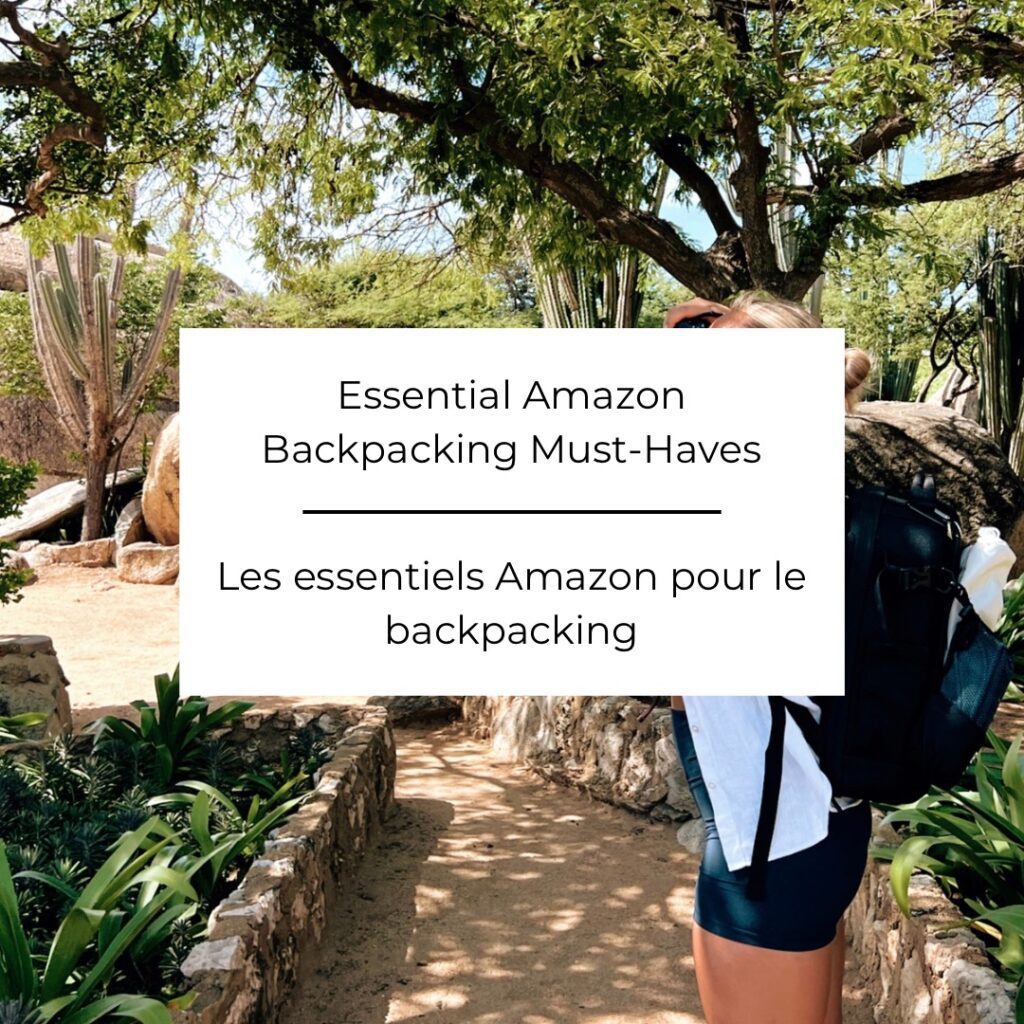Leaving your hometown with just a backpack and a sense of adventure is one of the most unique feelings. However, a lack of preparation and research can quickly turn a dream trip into a stressful experience. With over 25 countries visited with our backpacks, we’ve made our fair share of mistakes and learned valuable lessons along the way. Here are the key things we wish we had known before leaving for our first backpacking journey:
- Avoid Overpacking
- Choosing the Right Backpack for You
- Researching Transportation Options to Save Money and Time
- Budgeting for Unexpected Expenses
- Choosing the Right Hostels
- Respecting Local Culture and Etiquette
- Why You Shouldn’t Skip Travel Insurance
- Keeping Your Belongings Safe
- Checking Visa and Entry Requirements Before You Travel
- Preparing for Changing Weather Conditions
- Learning Basic Local Phrases
- Travel Safety Tips: How to Stay Safe
1
Avoid Overpacking
Overpacking is a mistake I’ve made more times than I’d like to admit, and every time, I regret it instantly. Packing too much doesn’t just give you more options—it gives you a heavier backpack to lug around when moving between cities. Plus, it means you’ll spend extra time unpacking and repacking each time you change locations.
Trust me, it’s much better to pack light and, in the worst-case scenario, buy an extra t-shirt along the way rather than having to dumb things mid-trip. Don’t forget that washing clothes while traveling is easy! You can find laundromats, use washer and dryer facilities at hostels or Airbnbs, or simply wash clothes in the shower at the end of the day.
2
Choosing the Right Backpack for You
Your backpack is going to be your closest companion on your trip, so choosing the right one is crucial. A poor-quality bag that causes discomfort or pain can turn an exciting adventure into a struggle, especially when you’re walking and moving between cities or countries.
Trust me, you don’t want that! That’s why we’ve put together a complete guide How to Choose the Perfect Backpack for Your Travels: A Comprehensive Guide to help you find the perfect backpack based on your needs and travel style.
3
Researching Transportation Options to Save Money and Time
Wasting time while traveling is never enjoyable, especially when your time in a country is limited. That’s why doing some research before your trip is essential. It helps you prepare for any unexpected surprises and gives you a plan to save both time and money during your journey.
For example, knowing that most countries in Southeast Asia use apps like Grab and Gojek for taxi and scooter rides can be a real time-saver when you land. Similarly, if you’re traveling in Europe, Omio is a fantastic app for comparing transportation options between cities. It allows you to check in advance whether taking the train or a bus is the cheaper and more time-efficient option for routes like Lisbon to Porto in Portugal.
4
Budgeting for Unexpected Expenses
Even for budget travelers, setting aside funds for unexpected expenses is not just a recommendation—it’s a necessity. When you’re far from home and out of your comfort zone, anything can happen. Accidents and unexpected events can arise in a matter of seconds, and having a safety net in the form of an emergency budget can save you from unnecessary stress and financial strain.
Imagine missing a flight, accidentally damaging a locker in a hostel, or falling ill and needing to visit a hospital. These situations can happen to anyone, no matter how careful you are. Your travel insurance can serve as a guideline for how much to allocate for these unforeseen expenses. For example, if your insurance covers medical emergencies and flight issues, you may not need to set aside as much as someone without comprehensive coverage.
5
Choosing the Right Hostels
Staying in hostels is something every backpacker needs to try at least once. While it can be an incredible experience, it can also quickly turn into a “never again” moment if you’re not prepared. To make sure you get the most out of your stay, check out our articles Everything You Need to Know About Staying in Hostels: 15 Essential Questions Answered and 10 Essential Tips for Choosing the Perfect Hostel.
6
Respecting Local Culture and Etiquette
One of the best ways to immerse yourself in a new destination is by respecting the local culture and etiquette. Each country has its own norms, so it’s essential to research what is considered acceptable in one place, as it might not be in another.
A common aspect of etiquette to keep in mind is behavior when visiting religious sites. Globally, it’s generally expected to cover your chest, shoulders, and knees when entering places of worship. This simple act of respect can go a long way in showing appreciation for local customs and traditions.
For more detailed information, I invite you to read our Travel Guide for the country you want to visit, especially the section on Local Culture & Etiquette, which covers Cultural Norms, Language, and Visiting Religious Sites.
Stay connected! Follow us on social media for exclusive content & updates on our travels.
On our website, you’ll find all the essential information and tips, while on our social media, you’ll get even more – including personal experiences, funny moments, stunning videos, and much more!
7
Why You Shouldn’t Skip Travel Insurance
Travel insurance isn’t just an option to save money; it’s an essential safeguard in case something unexpected happens. At a minimum, you should have medical travel insurance that covers hospital visits, accidents, or any health-related emergencies while traveling.
Choosing the right travel insurance can be overwhelming, as there are many options with different types of coverage. Some of the most popular choices include Blue Cross, World Nomads, and Allianz Global Assistance.
8
Keeping Your Belongings Safe
Pickpocketing and theft are common risks when traveling. These tips focus on safeguarding your belongings and preventing the loss or theft of items that matter most to you:
- In Hostels: Most hostels provide lockers, but they don’t usually offer padlocks. Invest in combination padlocks with flexible handles, as they’re easy to use and you won’t have to worry about losing a key. It’s also a good idea to bring a second padlock as a backup.
- While Walking Around: A fanny pack or belt bag is an excellent choice for carrying your valuables. It’s lightweight, versatile, and can be worn around the waist or across your body for added security. This simple accessory is a game-changer for keeping essentials like your passport, money, and phone safe and within easy reach.
- For Your Money: A compact travel wallet is an essential item. You don’t need a bulky wallet—just something small and secure with a zipper for coins and a carabiner to attach it safely to your belt or bag. When choosing a travel wallet, look for one with RFID protection to prevent electronic pickpocketing and keep your credit card information safe from potential thieves.
9
Checking Visa and Entry Requirements Before You Travel
This is a mistake Jezabel learned the hard way. Not checking the visa and entry requirements for both your layover and final destination can quickly turn your trip into a stressful and costly experience. Some countries, like Vietnam, require a visa even for short layovers or overnight stays. Failing to know this information in advance can lead to unexpected refusals at immigration and leave you rushing to book an alternative travel route, potentially at a much higher cost. Always research visa requirements thoroughly, including layover countries, to ensure a smooth travel journey.
10
Preparing for Changing Weather Conditions
When planning your backpacking trip, understanding the weather conditions at your destination is crucial. Weather can be unpredictable, and knowing what to expect helps you pack smartly and stay comfortable throughout your journey.
Researching the typical weather patterns in advance allows you to plan for any surprises and avoid overpacking unnecessary items. For example, you might skip packing a heavy raincoat if you’re visiting Morocco in the dry season, but you’ll want to make sure it’s in your bag if you’re traveling to Bali during the rainy months.
Always prioritize versatile clothing that can be layered, and a few essentials for unexpected changes in the forecast.
11
Learning Basic Local Phrases
Learning a new language every time you travel to a different country is nearly impossible, but making an effort to learn some basic words and phrases can go a long way. It helps build trusting relationships with locals, comes in handy when you don’t have access to Google Translate, and overall, enhances your experience. Seeing the smiles on locals’ faces when you say “thank you” in their language is priceless.
Using an app like Duolingo can be a fun and effective way to learn the basics. You can start at your current level, and best of all, it’s completely free!
12
Travel Safety Tips: How to Stay Safe
Staying safe is a top priority for every traveler. A single bad experience can ruin an entire trip. While we can’t control everything that happens, we can take precautions to minimize risks and make the most of our travels. Be sure to check out Top Safety Tips for Solo Travelers: Stay Safe & Confident to help you stay safe and enjoy a worry-free adventure.
What’s Next?
Now that you know common mistakes to avoid while backpacking, it’s time to plan your trip! Here are some articles that could be helpful :
Don’t want to miss out on our latest articles? Be sure to subscribe to our website, and you’ll receive a notification every time we publish something new!






